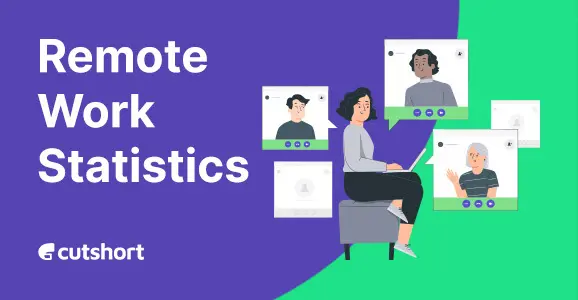Practical Job Search Tips for Senior Professionals
In last 2 months, I have gotten calls from 5 people. All with 15+ years of experience in product engineering companies and having grown very well into senior positions.
But then something happened which made them look for new opportunities. Need to relocate, layoffs, political standoffs, what not.
When you have 15+ years of experience, the traditional approach of applying to job postings is not just suboptimal – it may be more counterproductive.
Let’s discuss invaluable career advice for senior professionals that can reshape your job hunt. Here’s what you need to know…
Why Traditional Job Applications May Not Work for Senior Professionals
With over 15 years of experience, you have a wealth of knowledge, but recruiters often look for candidates within a certain age or experience bracket or salary bracket. A LinkedIn article by Abhinivesh Jain highlights how most job openings target 3-12 years experience, sidelining highly experienced candidates due to salary expectations and skill mismatches (source).
This points to the need for a different, strategic job search approach. Instead of hoping recruiters will come to you after numerous applications, it’s about actively engaging decision-makers.
1. Avoid Showing ‘Open to Work’ Desperation on LinkedIn
First impressions matter. Displaying an open-to-work banner can unintentionally signal desperation. Instead, present yourself as busy and engaged by listing roles like pro bono consulting, freelancing, side projects—anything that conveys you’re actively contributing and learning. This subtle shift can dramatically affect how hiring managers perceive you.
2. Target Key Stakeholders, Not Just Recruiters
Job posts often lead to recruiters who filter candidates based on rigid criteria. As a senior professional, it’s better to connect with engineering managers, CTOs, or VPs of engineering directly. Monitor target job postings, rank them by relevance, and then identify decision-makers.
Send them thoughtful cold emails that don’t demand a job but offer help or insights with links to your personal blog or LinkedIn profile. Starting a conversation here is crucial. Many senior roles get filled through these relationships rather than job boards.
3. Use Your Network Wisely for Referrals
Referrals remain the gold standard in job searching. But quite often, I see folks just forwarding their resume with a vague line:
“Please forward this to your network. I’m exploring new opportunities”.
People are not just busy – they have no clue which companies may have actual positions for you and if you’d be interested. Make it easy for your network to help you: Don’t ask vaguely for a referral; be specific.
Example: “Does anyone know someone in the engineering leadership at Company X?”
Leverage WhatsApp groups, professional communities, and alumni to find relevant connections.
This tailored approach improves your chances of getting warm introductions.
4. Maintain a Busy Professional Appearance Even When Unemployed
It’s tempting to list yourself as actively seeking work on platforms like LinkedIn or Cutshort, but that can decrease your desirability in the eye of companies.
Instead, emphasize ongoing projects, freelance consulting gigs, or professional development efforts. This showcases you as a proactive professional, poised for the next challenge rather than job hunting out of necessity.
According to career expert James Durago, consistent professional engagement signals resilience and adaptability and differentiates you from the crowd (source).
3 Hidden Trends in the Senior Job Market You Should Know
- The Demand for Versatile Senior Professionals: Senior roles now require a mix of technical expertise, leadership, and cross-functional skills.
- The Rise of Direct Engagement: Cold emails and direct connections to CTOs and VPs outperform mass applications.
- Networking Over Resumes: Referrals and insider connections continue to trump online applications for senior roles.
What do you think about these shifts? Are you ready to adapt your job search strategy accordingly?
Additional Tips for Navigating the Job Market with 15+ Years of Experience
Keep Your Skills Relevant and Learn Continuously
Technology evolves rapidly – as Abhinivesh Jain notes, staying updated through subscriptions, blogs, conferences, and social networks is essential to remain employable (source).
Demonstrate Your Impact, Not Just Responsibilities
Focus on accomplishments quantified by results. For instance, highlight projects where you improved efficiency or led transformational initiatives rather than just listing duties.
Update Your Resume Strategically
According to career advice from James Durago, tailor your resume by focusing on achievements from the last 10-15 years and summarizing earlier roles briefly (source).
How Technology Platforms Can Help Your Search
Online platforms like Cutshort cater specifically to professionals looking for their next opportunity. However, the key is not just to create a profile but to present yourself as engaged by showcasing ongoing projects or consultancy work. This strategic framing can increase the chances of recruiters taking notice without signaling desperation.
Final Thoughts and Summary
Looking for a job with 15+ years of experience calls for a nuanced approach. Here are the key takeaways:
- Ditch the ‘open to work’ label; instead, project engagement and growth.
- Prioritize building direct relationships with hiring managers and leaders.
- Use your network strategically—ask clear, pointed questions.
- Keep skills sharp and showcase measurable successes.
- Utilize job platforms wisely by presenting an active professional persona.
What strategies have you found effective in your job search journey? Share your thoughts below. Meanwhile, explore our article on how to stay relevant in the tech world for further insights.
Frequently Asked Questions (FAQs)
- Should I show I am ‘open to work’ on LinkedIn if I have 15+ years of experience?
- No, it’s better to avoid signaling desperation. Instead, list roles like consulting, freelancing, or side projects to demonstrate ongoing engagement.
- How should I approach recruiters for senior-level jobs?
- Focus on connecting with engineering managers, CTOs, or VPs rather than recruiters. Send personalized emails offering help or insights rather than directly asking for a job.
- How important are referrals for senior job seekers?
- Extremely important. Referrals from people with first-hand knowledge of your work dramatically improve your chances of getting an interview.
- What if I’m currently unemployed?
- Maintain a busy professional profile by highlighting ongoing projects, freelance work, or learning activities. This shows proactivity.
- How much of my career should I include on my resume?
- Focus on the last 10-15 years, emphasizing relevant achievements. You can summarize earlier roles more briefly.
- How do I stay updated with relevant skills?
- Subscribe to industry newsletters, follow experts on social media, attend webinars and conferences, and engage in continuous learning activities.
- Should I apply for jobs even if I don’t meet all criteria?
- Yes. Highlight your relevant skills and achievements, and apply confidently if you meet the majority of requirements.
- How can I make my job search more effective?
- Prioritize networking, tailor your outreach, demonstrate measurable impact, and stay professionally active online and offline.







